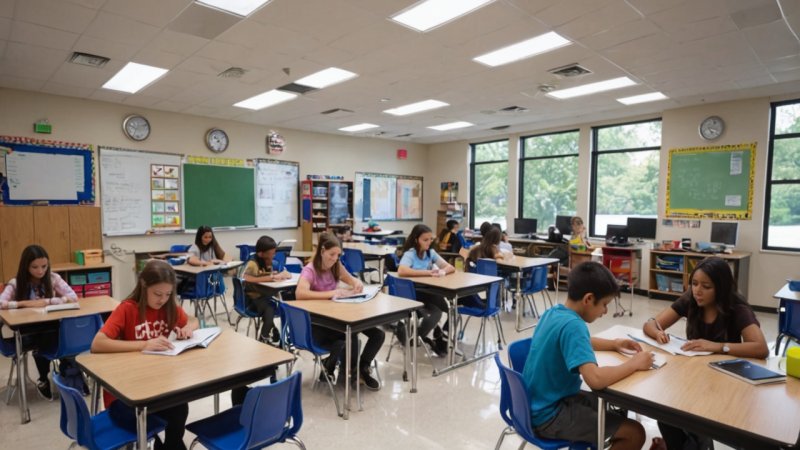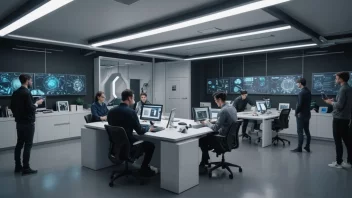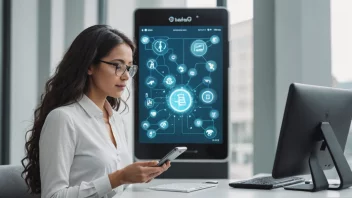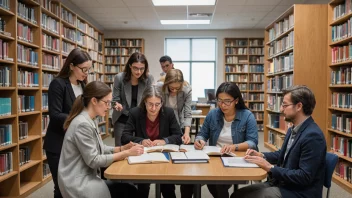The landscape of education is continuously evolving, driven by a myriad of factors including technological advancements, societal changes, and an ever-growing body of research. As we delve into the future of education, it becomes evident that research plays a pivotal role in shaping pedagogical methods, learning environments, and educational policies. This article will explore the various dimensions of how research is influencing education, from innovative teaching techniques to the integration of technology in classrooms, and how these developments are preparing learners for a rapidly changing world.
The Role of Educational Research
Educational research encompasses a wide range of studies aimed at understanding how people learn, the effectiveness of different teaching strategies, and the impact of educational systems on student outcomes. By employing both qualitative and quantitative methods, researchers strive to uncover insights that can inform practice and policy. The importance of this research cannot be overstated, as it provides a foundation for evidence-based decision-making in education.
Types of Educational Research
- Quantitative Research: This involves the collection and analysis of numerical data to identify patterns and relationships. Common methods include surveys, standardized tests, and statistical analysis.
- Qualitative Research: This focuses on understanding the experiences and perspectives of individuals through interviews, observations, and case studies. It seeks to provide deeper insights into the complexities of learning and teaching.
- Mixed-Methods Research: Combining both quantitative and qualitative approaches, mixed-methods research allows for a more comprehensive understanding of educational phenomena.
Innovative Teaching Techniques
Research has led to the development of various innovative teaching techniques that cater to diverse learning styles and needs. These methods not only enhance student engagement but also improve learning outcomes.
Project-Based Learning (PBL)
Project-Based Learning is an instructional approach that encourages students to learn by engaging in real-world projects. Research shows that PBL fosters critical thinking, collaboration, and creativity. By working on projects, students apply their knowledge in meaningful contexts, which enhances retention and understanding.
Flipped Classrooms
The flipped classroom model reverses traditional teaching methods by delivering instructional content outside of the classroom, often through video lectures, while in-class time is dedicated to exercises, projects, and discussions. Studies have indicated that this approach increases student engagement and allows for more personalized learning experiences.
Personalized Learning
Personalized learning tailors educational experiences to meet individual student needs. Research supports the effectiveness of this approach, as it recognizes that students learn at different paces and in different ways. By leveraging data analytics and adaptive learning technologies, educators can create customized learning paths that optimize student success.
The Integration of Technology in Education
Technology has become an integral part of the educational landscape, transforming how instruction is delivered and how students engage with content. Research in this area focuses on the impact of technology on learning outcomes, accessibility, and student motivation.
Online Learning Platforms
The rise of online learning platforms has revolutionized education, making it more accessible to learners around the globe. Research indicates that online courses can be as effective as traditional face-to-face instruction when designed thoughtfully. Asynchronous learning allows students to learn at their own pace, while synchronous sessions foster community and collaboration.
Gamification
Gamification involves incorporating game-like elements into educational contexts to boost engagement and motivation. Research suggests that gamified learning can enhance student participation and improve learning outcomes by making education more enjoyable and interactive.
Artificial Intelligence in Education
Artificial intelligence (AI) is increasingly being used in educational settings to provide personalized learning experiences, automate administrative tasks, and analyze student data. Research into AI's role in education indicates its potential to enhance learning by providing real-time feedback and support to students.
Addressing Equity and Access
One of the significant challenges in education is ensuring equitable access to quality learning opportunities. Research plays a vital role in identifying disparities and developing strategies to address them.
Understanding Achievement Gaps
Educational research has highlighted the existence of achievement gaps based on socioeconomic status, race, and geography. By analyzing these disparities, researchers can inform policies and practices aimed at closing the gaps and promoting equity in education.
Universal Design for Learning (UDL)
Universal Design for Learning is an educational framework that emphasizes the need for flexible approaches to teaching and learning. Research supports UDL's effectiveness in accommodating diverse learners, ensuring that all students have equal opportunities to succeed.
The Future of Educational Policy
As research continues to inform our understanding of effective educational practices, it also has significant implications for educational policy. Policymakers rely on research findings to shape funding, curriculum standards, and teacher training programs.
Evidence-Based Policy Making
Evidence-based policymaking involves using research findings to guide decisions about education policies and practices. This approach ensures that resources are allocated effectively and that interventions are based on proven strategies. Research has shown that policies grounded in evidence lead to improved educational outcomes.
Collaboration Between Researchers and Educators
Fostering collaboration between researchers and educators is essential for translating research findings into practice. Initiatives that promote partnerships can enhance the relevance and applicability of research in real-world educational settings.
Conclusion
The future of education is being reshaped by ongoing research that informs innovative teaching methods, integrates technology, addresses equity issues, and guides policy decisions. As we continue to explore the intersection of research and education, it is crucial for educators, policymakers, and researchers to collaborate and share insights. By leveraging research, we can create an educational landscape that not only meets the needs of today's learners but also prepares them for the challenges of tomorrow.






